Mairi MacDonald never actually intended to sell the handmade soaps that she crafted for her family and friends.
The Aboyne mum had been looking at different ways to cut down plastic in her own home.
She admitted she used to “spend a fortune” on skincare and realised she could make more eco-friendly swaps to her routine, but didn’t want to compromise on the quality.
Around the same time, her three young children kept getting skin problems like eczema and cradle cap. Mairi tried all many different liquid soaps prescribed by doctors but realised nothing was making a difference to their skin.
And once she started looking into the ingredients in the soaps and skincare her family used she realised she “just had to do something about it”.
Describing herself as “very Scottish”, the mum of three started giving her creations away to her friends who loved them so much they convinced her to start selling them.
She launched Thistle & Clay in February 2019, and her business — and product list — has grown ever since.
Mairi spoke to the Press and Journal about starting her sustainable business, the challenges she has faced over the last five years and her future plans.
From market stalls and burnt kitchen worktops to beautiful soap shop in Aboyne
Mairi, who previously worked in branding, always had an interest in aromatherapy and spent hours researching ingredients.
Once she started making soaps she noticed a “massive change” in her kid’s skin within just a week. Soon enough all the problems her kids had been having cleared up.
After some convincing from her friends, she took up a stall at Aboyne Market and her products were a hit with the community.
Laughing, Mairi said all her worktops were getting burnt from all the soap making and her home was turning into a “chemistry lab” so she set her sights on opening a shop.
By December 2019, she had secured the keys to the Soap Shack in Aboyne.
‘And then Covid happened…’
After moving and setting up the shop things were running smoothly for Mairi, who had some impressive contracts in the pipeline.
But then March hit and Covid abruptly derailed her plans.
Mairi was left juggling her business while homeschooling three kids — her eldest was in primary 5 while her twins were just in primary 1.
“It was just a terrible time”, she sighed, “we just kind of kept going and I had to homeschool three kids.
“It was a disaster, but we got through it.”
Once restrictions started lifting and her kids were back at school, Mairi realised all the soaps and hand sanitisers were making their hands fall to bits.
So she set about making hand sanitisers to give out to schools and churches, laughing as she described herself as a “terrible businesswoman”.
I couldn’t help but wonder if Covid changed people’s priorities and perceptions when it came to sustainability.
Mairi hesitated before answering: “The first few months we were open before lockdown, there was a big drive to reduce plastic, we’d just kind of timed it right I think.
“And then Covid happened, and you had masks and PPE, and the testing kids and I think people stopped thinking about plastic.
“I think people were desensitised in a lot of ways, and everywhere they went everything was disposable.
“There were still a few that were very driven, but as a movement, it fell by the wayside.”
Bridge closing ‘just another blow’ on top of rising costs
The spiralling cost of living has hampered independent businesses up and down the country — and Thistle & Clay is no different.
Mairi says she still has her regular customers and is seeing new people come into the shop after spotting her on Instagram or trying the product while staying in one of the nearby estates.
And, Mairi has also found the area sometimes struggles to attract people.
“What I’m finding with Aboyne is attracting people here,” she explained. “We seem to be one of those villages where people just drive through to go to Ballater or Braemar.
“It’s just trying to attract people here — but there’s a lot more going on than you know. There’s some lovely wee shops and coffeeshops and things here.”
This feeling has been made even more apparent after Aboyne Bridge, which carries the B968 Bridgeview Road over the River Dee was suddenly closed in November last year.
At the time Mairi admitted the closure was “just another blow on top of the cost of everything”.
And while there has been a strain put on the local businesses, she stresses the closure has been “huge” for residents on the other side of the river in Birse and the surrounding area.
People more interested in sustainability again
Mairi admitted that running a business, making products by hand, printing all the labels and keeping up with social media has “not been easy”.
But, after “surviving” Covid and all the other challenges thrown her way, she’s positive things are looking up.
And, Mairi believes people are once again trying to become more sustainable, with many stopping in past her shop saying they’re trying their best to cut down on plastic.
“I think we are coming out the other side, and I’m feeling much more positive — and I have lots of plans,” she teased.
“It’s no walk in the park running a business and making products but I’m actually just a really stubborn person.
“I don’t like to give up — maybe I should have given up but I think this year is going to be better and people are properly getting over what we were all put through.”
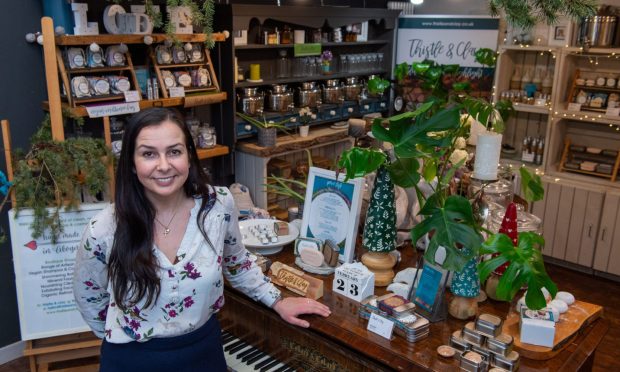

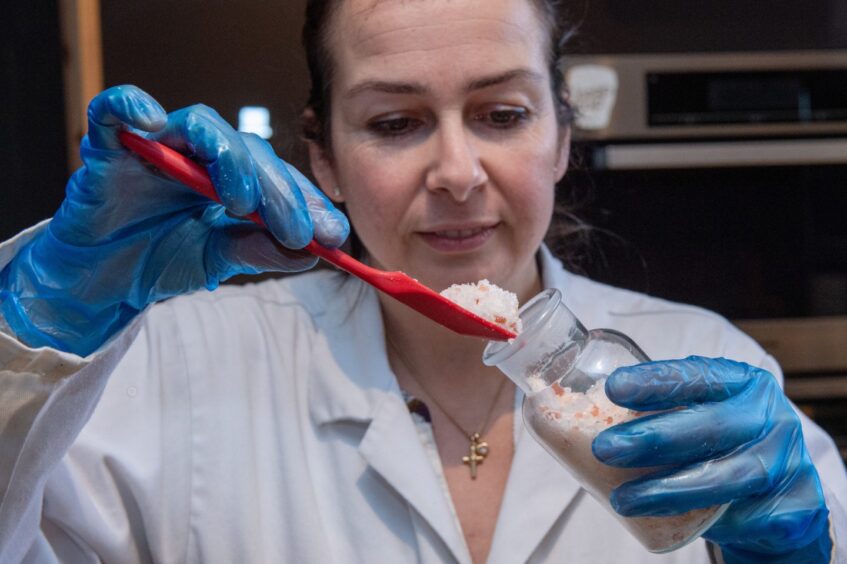
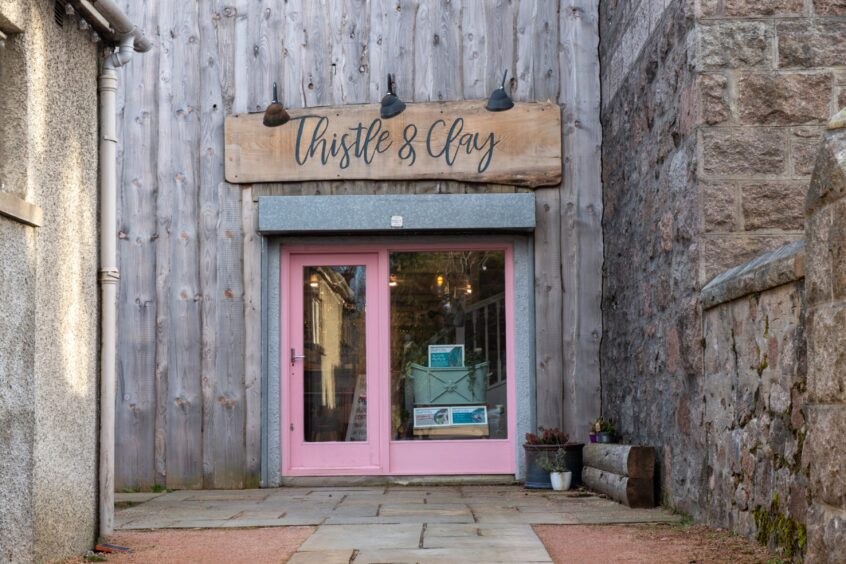
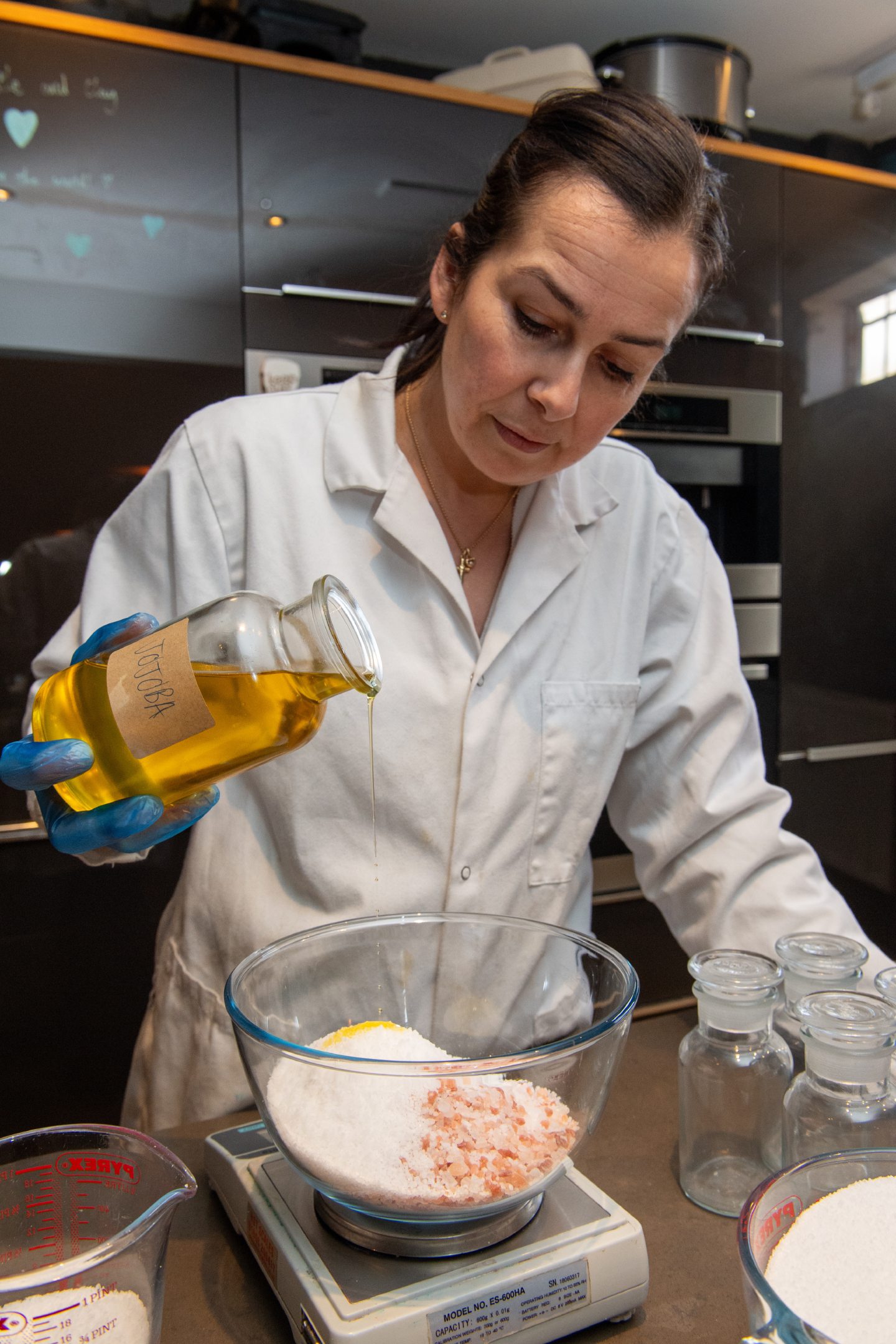
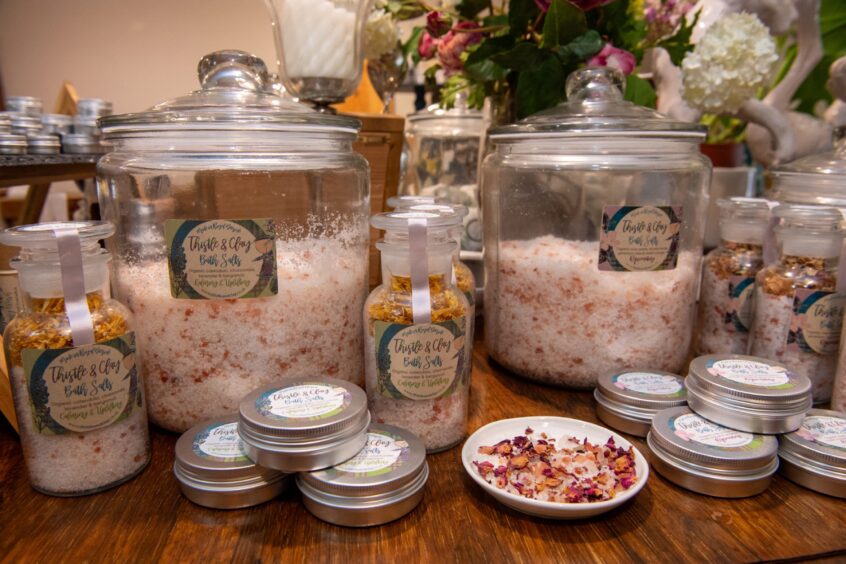

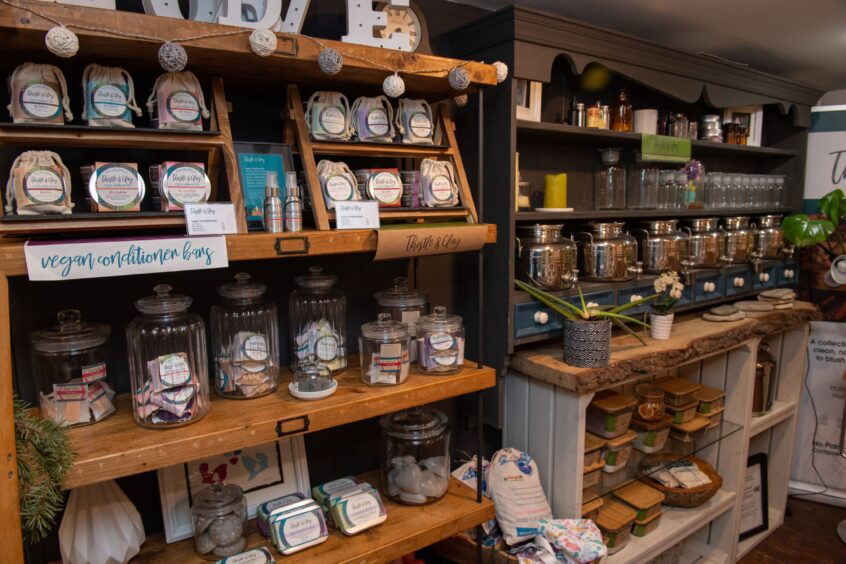
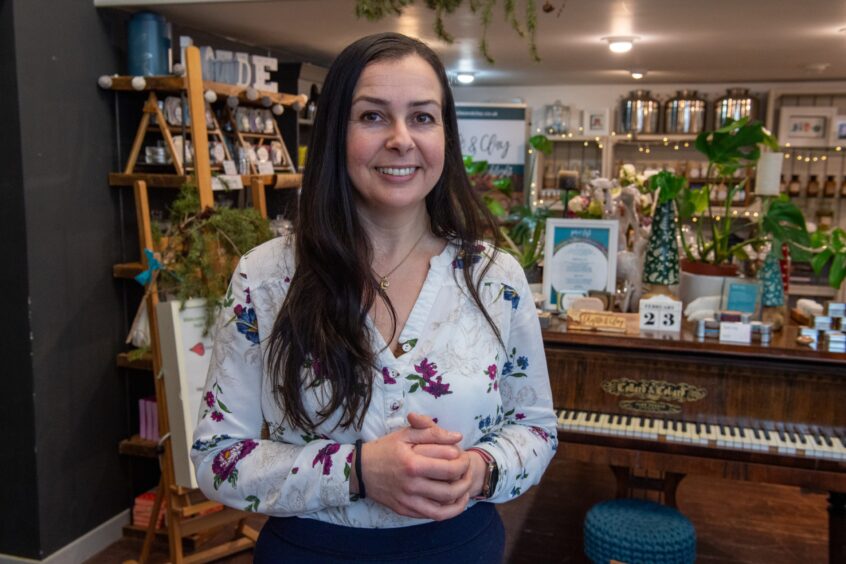
Conversation